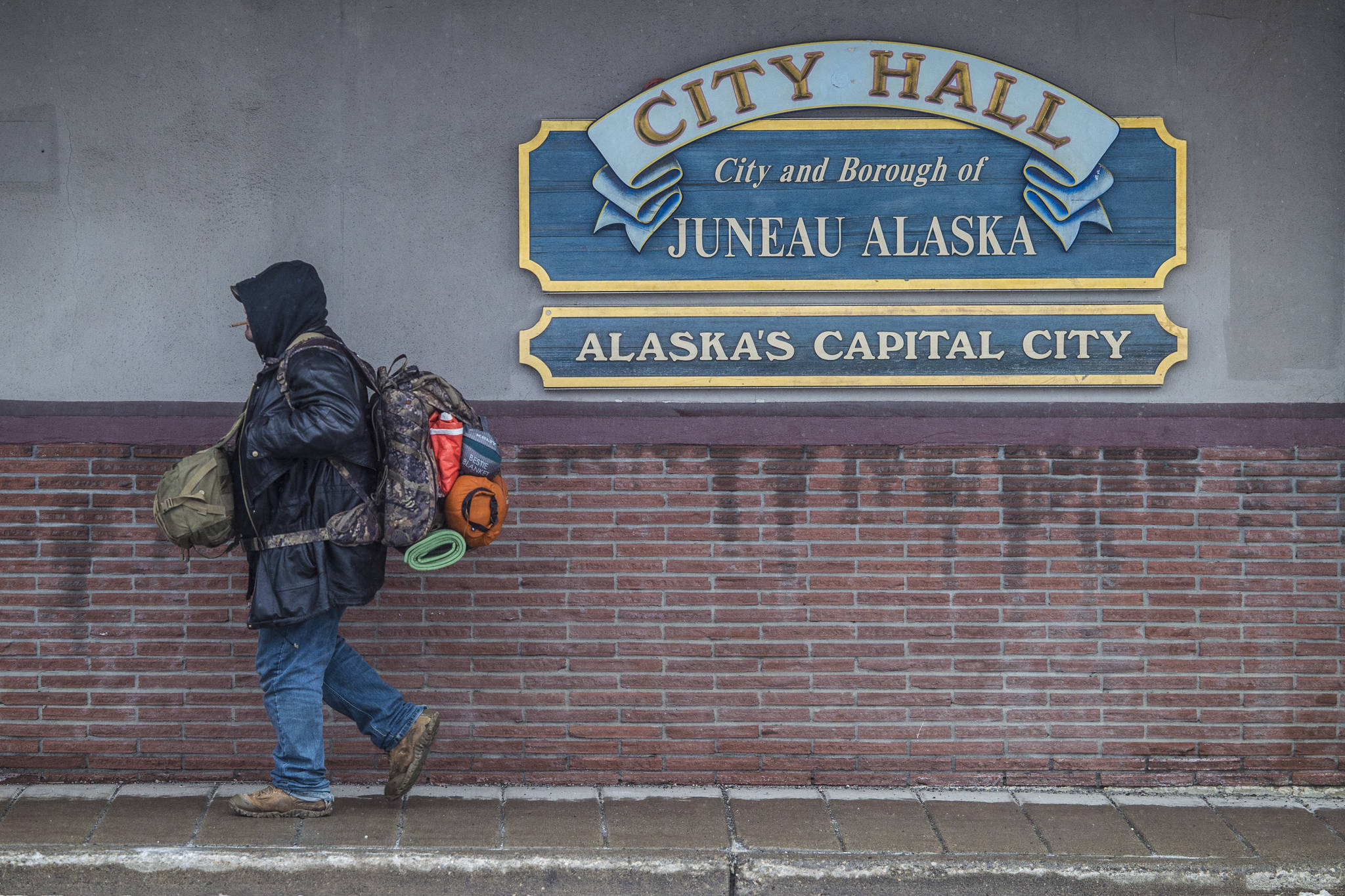Correction: An earlier version of this article stated that Dick Mandsager is the executive director of the Rasmuson Foundation. Mandsager is a senior fellow working on homelessness. Rasmuson does not have an executive director. The foundation’s CEO and president is Diane Kaplan. The article has been updated to reflect this.
As experts from around the state spoke to the Senate Finance Committee on Tuesday about homelessness throughout the state, the impending announcement of the governor’s budget hung over the presentation.
Gov. Mike Dunleavy’s budget proposal, which is expected to include about $1.6 billion in cuts to state funding, comes out Wednesday. Dick Mandsager, a senior fellow working on homelessness for the Rasmuson Foundation, recommended during his presentation to the senators that they don’t cut funding to organizations that serve the state’s homeless population.
Mariya Lovishchuk, director of Juneau’s Glory Hall homeless shelter, was sitting in the audience and thinking the same thing.
“We have been bracing for the budget that’s going to come out tomorrow,” Lovishchuk said in an interview Tuesday afternoon, “because we really operate as efficiently as we can on very minimal funding, so any cuts to our programs would be totally devastating.”
She said that about $145,000 of the shelter’s budget (which is about $650,000) comes from state grants.
[Legislators brace for unknowns of Dunleavy’s budget]
Though there’s anxiety about the governor’s proposal, Lovishchuk and the City and Borough of Juneau Housing and Homelessness Director Irene Gallion both said Tuesday that they were encouraged by how interested the senators on the committee were in the issue. They both said they were impressed by the questions the senators were asking.
“Housing for the homeless is very complex,” Gallion said in an interview. “It’s kind of a Jenga tower. If you remove one piece, it compromises the structure of the whole thing, and I think the questions the senators were asking showed that they understood that.”
Senate Finance Committee Co-Chair Sen. Natasha von Imhof, R-Anchorage, is a board member with the Rasmuson Foundation and said Tuesday’s presentation was important to her. At the close of the meeting, she said that from everything she’s heard and read, Dunleavy’s budget proposal will include large reductions in state funding.
Von Imhof said that with limited funding, “it’s important for us to allocate it to the areas where we can get the most benefit.” One of those areas, she said, appears to be providing more homes for those on the streets.
“I think that you’ve made a case that investing in homes is a highest and best use of our dollars,” von Imhof said to the presenters. “I just appreciate that today. In the next couple weeks and couple months, we will be grappling with that very issue of where to allocate our money.”
Examining homelessness resources in Juneau
A presentation from Brian Wilson, the executive director of the Alaska Coalition on Housing and Homelessness, gave an update on homelessness around the state and how communities are devoting resources to help those on the street. Juneau ranked well ahead of many communities in the state in terms of how many beds there are for those experiencing homelessness.
These beds come in the form of Housing First — a place to live for Juneau’s 32 most vulnerable residents — and other transitional housing programs. Gallion said Juneau has to be more prepared because so many people from outlying communities come for health or other services and get stuck in town without a place to live.
“It illustrates that we really are a hub for the services,” Gallion said. “A small village may not have behavioral health supports that we can provide here in town. But when they come here for those supports, do they have a place to live? Some of them get stranded. I think that’s what drives people into the hub communities, is there’s not the support that they need in their own (communities).”
Homelessness continues to rise in Juneau, according to the most recent Point In Time count that was done this January. The annual head count of homeless people revealed there were 235 homeless people in Juneau. That was an increase in 20 people from 2017. The amount of unsheltered people who were out on the street decreased by 15 people this year, the count showed, due in part to transitional housing such as Housing First.
Housing First is set to expand in the near future. The Juneau Housing First Collective recently secured a $2.8 million grant from the Alaska Housing Finance Corporation that jump-started the second phase.
Lovishchuk said this fast progress in expanding Housing First is a nod to how the whole community is starting to be more dedicated to helping those on the street.
“We’re just really making good progress,” Lovishchuk said. “I think that was a reflection of how well we’re working together.”
• Contact reporter Alex McCarthy at 523-2271 or amccarthy@juneauempire.com. Follow him on Twitter at @akmccarthy.

